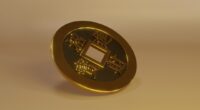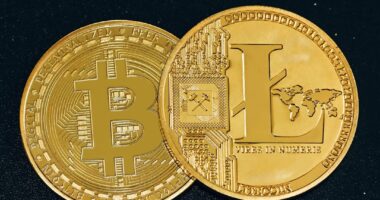Non-fungible tokens (NFTs) are unique digital assets that cannot be exchanged on a like-for-like basis, unlike cryptocurrencies such as Bitcoin or Ethereum. NFTs can represent various digital items, including art, music, videos, collectibles, and virtual real estate. The ownership and authenticity of these assets are verified using blockchain technology, ensuring security and tamper-proof records.
NFTs offer several potential benefits for creators and collectors. Creators can monetize their digital works directly, retaining ownership and control while earning a larger share of profits. Collectors and investors can acquire rare digital assets that may appreciate in value over time.
NFTs also enable closer connections between creators and their audience, allowing fans to support their favorite artists directly. The impact of NFTs extends beyond individual transactions, potentially disrupting traditional industries such as art, gaming, and entertainment. This technology opens up new avenues for innovation and creativity in the digital marketplace, challenging established business models and creating opportunities for novel forms of engagement and commerce.
Key Takeaways
- NFTs are unique digital assets that can represent ownership of digital or physical items, and they offer opportunities for creators and investors to benefit from their creation and sale.
- NFT minting is the process of creating and tokenizing digital assets on a blockchain, and getting started involves choosing the right platform, understanding gas fees, and creating metadata for your NFTs.
- The crypto industry offers a range of job opportunities related to NFTs, including roles in marketing, community management, development, and art curation, among others.
- Remote NFT jobs provide flexibility and the opportunity to work from anywhere, and finding success in a virtual environment requires strong communication skills and self-discipline.
- The rise of Web3 and the demand for crypto jobs is creating new opportunities for individuals with skills in blockchain technology, digital art, and community management, among others.
The Basics of NFT Minting and How to Get Started
Choosing a Blockchain Platform
To get started with NFT minting, you will need to choose a suitable blockchain platform that supports NFT creation, such as Ethereum, Binance Smart Chain, or Flow.
Setting Up a Digital Wallet
Once you have selected a platform, you will need to create a digital wallet to store your NFTs and interact with the blockchain. There are various wallet options available, including web-based wallets, mobile wallets, and hardware wallets, each with its own unique features and security measures.
Minting Your NFT
After setting up your wallet, you can begin the minting process by uploading your digital asset to a marketplace or NFT platform that supports NFT creation. You will need to provide details about your digital asset, such as its title, description, and any additional metadata that you want to include. Once you have completed these steps, you can proceed to mint your NFT, which involves creating a unique token on the blockchain that represents your digital asset. This process typically incurs a gas fee, which is a transaction fee paid to the network for processing your minting transaction.
Selling Your NFT
Once your NFT is minted, it will be available for sale or auction on the marketplace, where collectors and investors can purchase it using cryptocurrency.
Exploring NFT Jobs and Opportunities in the Crypto Industry

The growing popularity of NFTs has created a demand for various job opportunities in the crypto industry. From artists and designers to developers and marketers, there is a wide range of roles available for individuals looking to enter the NFT space. Artists and designers can capitalize on the demand for digital art and collectibles by creating and selling their own NFTs or collaborating with brands and platforms to produce exclusive content.
Developers with experience in blockchain technology and smart contracts are in high demand for building NFT marketplaces, platforms, and decentralized applications (dApps) that support NFT creation and trading. Marketers and community managers play a crucial role in promoting NFT projects, engaging with collectors and investors, and building a strong community around a particular NFT collection or platform. Additionally, legal experts and consultants specializing in intellectual property rights and blockchain law are needed to navigate the complex legal landscape of NFTs and ensure that creators’ rights are protected.
As the NFT market continues to evolve, new job opportunities are likely to emerge, creating a diverse and dynamic industry with plenty of room for growth and innovation.
Remote NFT Jobs: How to Find and Thrive in a Virtual Environment
| Metrics | Data |
|---|---|
| Number of Remote NFT Jobs | Increasing |
| Job Satisfaction | High |
| Remote Work Challenges | Isolation, Communication |
| Remote Work Benefits | Flexibility, Work-life Balance |
| Remote Work Tools | Zoom, Slack, Trello |
Remote NFT jobs offer the flexibility to work from anywhere in the world and tap into a global talent pool of skilled professionals. With the rise of remote work and decentralized organizations, many companies in the crypto industry are embracing remote work arrangements to attract top talent and foster a diverse workforce. To find remote NFT jobs, individuals can leverage online job boards, freelance platforms, and networking events within the crypto community to connect with potential employers and collaborators.
Building a strong online presence through social media, personal websites, and portfolio showcases can also help showcase your skills and attract remote job opportunities. Thriving in a virtual work environment requires self-discipline, effective communication skills, and the ability to collaborate with team members across different time zones. Remote workers should establish a dedicated workspace, set clear boundaries between work and personal life, and maintain regular communication with their colleagues using digital tools such as video conferencing, instant messaging, and project management platforms.
Embracing a remote work lifestyle offers numerous benefits, including greater flexibility, reduced commuting time, and the opportunity to work with diverse teams from around the world.
The Rise of Web3 and the Demand for Crypto Jobs
Web3 is an emerging paradigm that envisions a decentralized internet powered by blockchain technology, enabling peer-to-peer interactions without relying on centralized intermediaries. This shift towards Web3 has sparked a surge in demand for crypto jobs across various sectors, including finance, technology, art, gaming, and entertainment. As more industries embrace blockchain technology and decentralized applications, the need for skilled professionals with expertise in cryptocurrency, smart contracts, decentralized finance (DeFi), and NFTs continues to grow.
The rise of Web3 has also given rise to new business models and revenue streams, such as decentralized autonomous organizations (DAOs), tokenized governance systems, and creator economies that empower individuals to monetize their skills and contributions directly through blockchain-based platforms. This shift towards a more open, transparent, and inclusive internet has the potential to reshape the way we create, consume, and interact with digital content, leading to new opportunities for innovation and collaboration in the crypto space.
Tips for Breaking into the NFT and Crypto Job Market

Staying Informed and Building Connections
Building a strong professional network within the crypto community can provide valuable insights into job opportunities, industry events, and potential collaborations. This network can serve as a valuable resource for staying informed about the latest developments and trends in the industry.
Acquiring Relevant Skills
Acquiring relevant skills through online courses, workshops, or certifications in blockchain development, smart contract programming, digital marketing, or community management can also enhance your employability in the crypto job market. Additionally, showcasing your work through an online portfolio or participating in open-source projects can demonstrate your expertise and passion for the industry to potential employers or clients.
Taking a Proactive Approach
Embracing a proactive mindset by seeking out mentorship opportunities or contributing to industry discussions on social media platforms can help you stand out in a competitive job market. By taking the initiative to learn, network, and showcase your skills, you can increase your chances of success in the NFT and crypto job market.
Navigating the World of NFT Minting: Best Practices and Pitfalls to Avoid
Navigating the world of NFT minting requires careful consideration of best practices and potential pitfalls to avoid. When minting an NFT, creators should ensure that they have the legal rights to tokenize their digital assets and that they are not infringing on any copyright or intellectual property laws. It is essential to provide clear ownership rights and provenance information for your NFTs to establish their authenticity and value in the marketplace.
Creators should also consider the environmental impact of minting NFTs on energy-intensive blockchain networks such as Ethereum. Exploring alternative blockchain platforms with lower energy consumption or participating in eco-friendly initiatives within the crypto community can help mitigate the environmental footprint of NFT minting. Additionally, creators should be mindful of potential scams or fraudulent activities within the NFT space, such as fake collections or unauthorized resales of their work.
Engaging with reputable marketplaces and conducting thorough research on potential collaborators or buyers can help protect creators from falling victim to scams or unethical practices. In conclusion, NFTs offer a unique opportunity for creators, collectors, and investors to participate in the digital economy by tokenizing and trading exclusive digital assets on blockchain platforms. The growing demand for NFT jobs within the crypto industry presents diverse opportunities for individuals with skills in art, design, development, marketing, legal expertise, and community management.
As remote work becomes increasingly prevalent in the crypto space, individuals can leverage virtual job opportunities to thrive in a globalized work environment. The rise of Web3 is driving innovation across various sectors and creating new pathways for individuals to contribute to decentralized ecosystems through blockchain technology. Breaking into the NFT and crypto job market requires a proactive approach to skill development, networking, and industry engagement.
Finally, navigating the world of NFT minting involves adhering to best practices while avoiding potential pitfalls related to legal rights, environmental impact, and fraudulent activities within the marketplace.
FAQs
What is NFT minting?
NFT minting is the process of creating a unique digital asset and recording it on a blockchain. This process involves turning a digital file, such as an image, video, or audio clip, into a non-fungible token (NFT) that can be bought, sold, and traded.
How does NFT minting work?
NFT minting involves uploading a digital file to a platform that supports NFT creation, such as an NFT marketplace or a specialized NFT minting platform. The creator then adds metadata and other details to the file, such as a title, description, and edition number, before minting the NFT. Once minted, the NFT is recorded on a blockchain, providing proof of ownership and authenticity.
What are the benefits of minting NFTs?
Minting NFTs allows creators to monetize their digital creations by selling them as unique, blockchain-verified assets. NFTs also provide a way for creators to establish ownership and provenance of their work, as well as potentially earn royalties from future sales.
What are some tips for minting successful NFTs?
Some tips for minting successful NFTs include creating high-quality, original digital content, engaging with the NFT community, and leveraging social media and other marketing channels to promote your NFTs. It’s also important to carefully consider pricing, edition sizes, and other factors that can impact the desirability and value of your NFTs.
What are some popular platforms for minting NFTs?
Popular platforms for minting NFTs include OpenSea, Rarible, and Mintable, as well as blockchain networks such as Ethereum and Binance Smart Chain that support NFT creation and trading. Each platform has its own features, fees, and community, so it’s important to research and choose the platform that best aligns with your goals as a creator.





